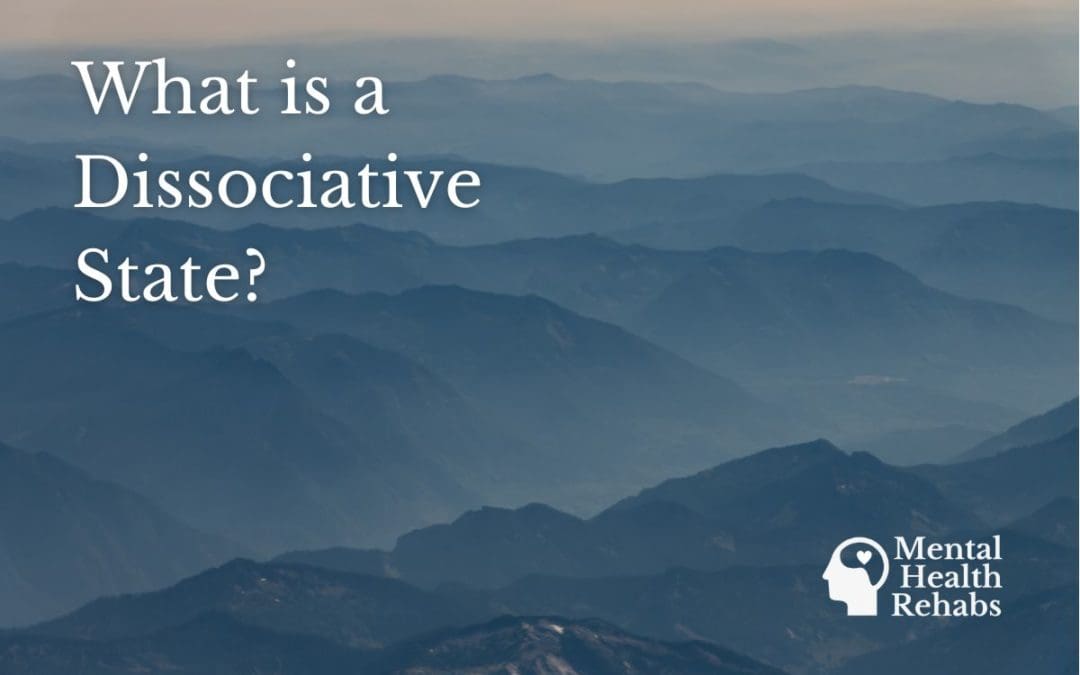We all know life can be overwhelming at times. What you might not know is that in cases of extreme stress, the mind may disassociate as an act of self-preservation to distance a person from the distressing event. This condition can manifest itself in a myriad of ways from taking on a different identity to having large amnesiac gaps in your memory. In this article, we’ll cover everything you need to know about symptoms, treatment options, and of course, what a dissociative state is.
Dissociative State Definition
A dissociative state or dissociative episode is when a person feels disconnected from themselves, the world around them, or both. These changes can happen suddenly and without warning.
During these periods a person may experience different types of dissociation such as:
- Have no recollection of what occurred (dissociative amnesia)
- Forget their own identity (dissociative fugue)
- Feel that people or objects aren’t real or don’t recall emotions or sensations associated with a specific memory (derealization)
- Feel they’re disconnected from their bodies and watching their lives in the third person (depersonalization)
- Change identity; speaking or behaving differently or going by different names (identity alteration)
- Feel like there are multiple people inside you; find it difficult to define who you are (identity confusion)
Everyone’s experience is different. A person who disassociates may experience all or only some of those symptoms. The length of time of a dissociative episode can vary as well from a few hours to lasting weeks or months at a time. When these episodes occur more frequently, they might fall under the category of a dissociative disorder, which include dissociative amnesia, dissociative identity disorder (formerly multiple personality disorder), and depersonalization-derealization disorder. It’s not very common and only affects about 2% of Americans.
In most cases, a person doesn’t even realize dissociation is happening and when they come to, they don’t have any memory of what just occurred. The disruptive nature of this condition can make it difficult for affected individuals to carry out everyday activities and can put individuals at greater risk of suicidal behavior, self-harm, harm to others, and sexual dysfunction.
Dissociation symptoms
- Lightheadedness
- Feeling numb or having no pain
- Hearing voices
- Blankly staring; glazed expression
- Forgetfulness; mind going blank
- Emotional detachment
- Out-of-body experiences
- High levels of stress
- Difficulty coping with stress
- Distorted perception
- Depression or anxiety
- Panic attacks
- OCD
- Sexual dysfunction
- Suicidal behavior
What causes dissociation?
Disassociation is a coping mechanism that develops subconsciously as a result of some sort of trauma or highly stressful event. Examples of such trauma include, but are not limited to physica abuse, emotional abuse, war, or living through a natural disaster. Traumatic events at an early age can significantly increase the risk of developing a dissociative disorder. Studies have found that 90% of those diagnosed with a dissociative disorder were the victim of childhood abuse or neglect.
A dissociative state can also be a symptom of a greater mental illness. Other psychiatric conditions where dissociation is a symptom include:
- Depression
- Anxiety
- Bipolar disorder
- Borderline personality disorder
- Post-traumatic stress disorder
- Schizophrenia
Dissociation can also be a side effect of using drugs or medications. In some cultures, it’s encouraged as part of religious or cultural rituals.
Episodes can start as early as childhood, but typically start occuring when a person is around 16 years old. The likelihood of experiencing dissociation decreases significantly once a person reaches their twenties.
Treatment for Dissociation
Currently, there are no medications used for treating dissociative disorders or episodes. However, antidepressants, antipsychotics, and mood stabilizers might be prescribed to treat dissociation symptoms.
The most effective way to combat this condition is for the individual to gain control over their triggers–the people, places, things, or sensory information that (sometimes unconsciously) reminds them of the traumatic event. As such, the primary treatment for dissociative episodes is psychotherapy, also known as talk therapy.
Cognitive behavioral therapy (CBT) is particularly effective. CBT is where the therapist can help the person recognize their triggers and develop healthier coping mechanisms. Hypnosis and a new therapy modality called Eye Movement Desensitization and Reprocessing (EMDR) have also been found to be helpful for treating dissociative disorders.
An effective strategy for coping with dissociation in the moment is using the grounding technique. A person is supposed to turn their attention to their immediate surroundings and describe things that they can feel, hear, taste, smell, and see.
Getting help for dissociative episodes
It’s possible that with proper treatment, a person can be cured and will no longer experience dissociative symptoms. Even in the cases where dissociation doesn’t completely stop, it can still give individuals a greater sense of comfort knowing they aren’t completely helpless in the face of their psychiatric condition. If you or a loved one is struggling with dissociation, talk to a mental health professional today.

